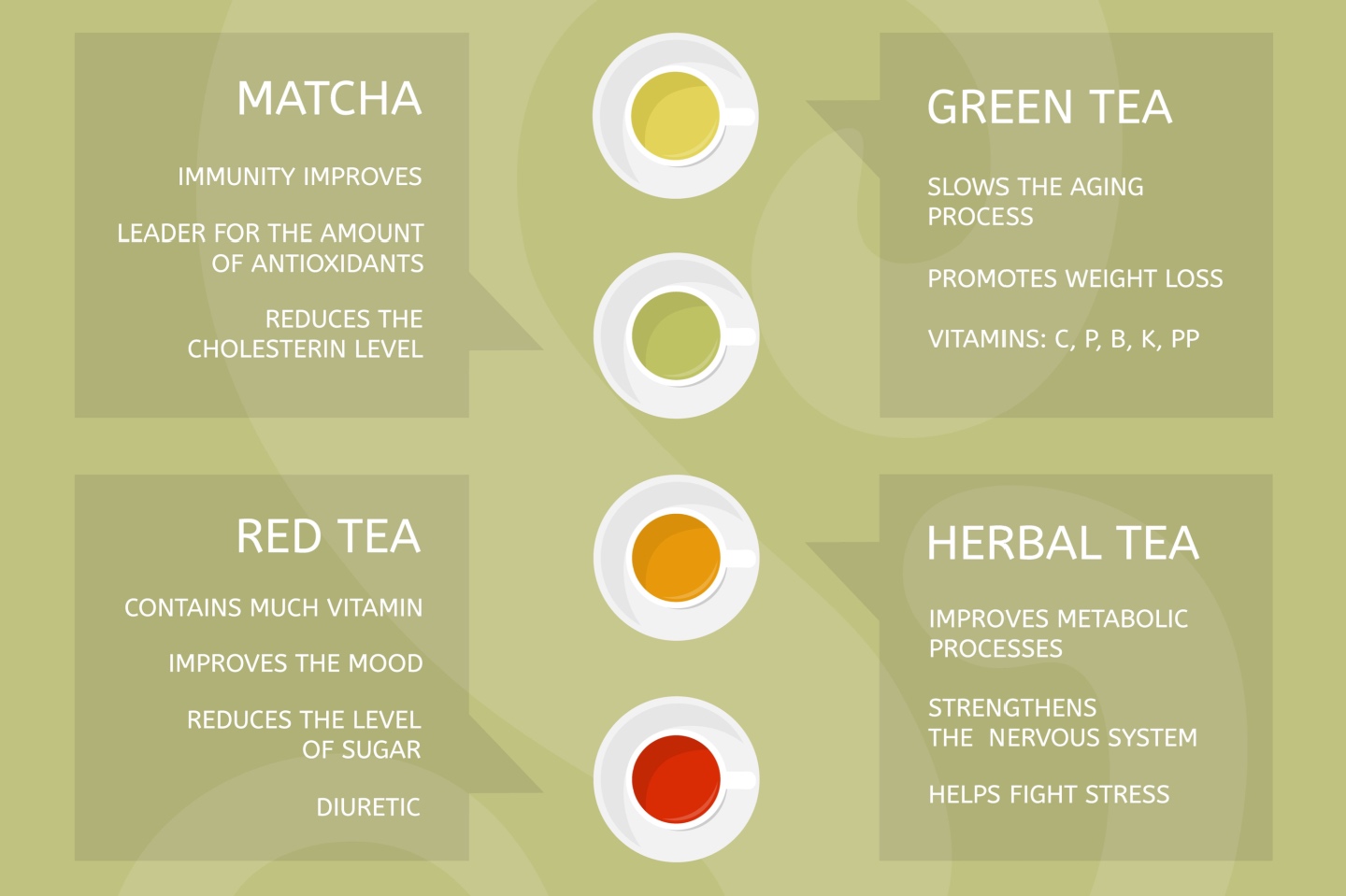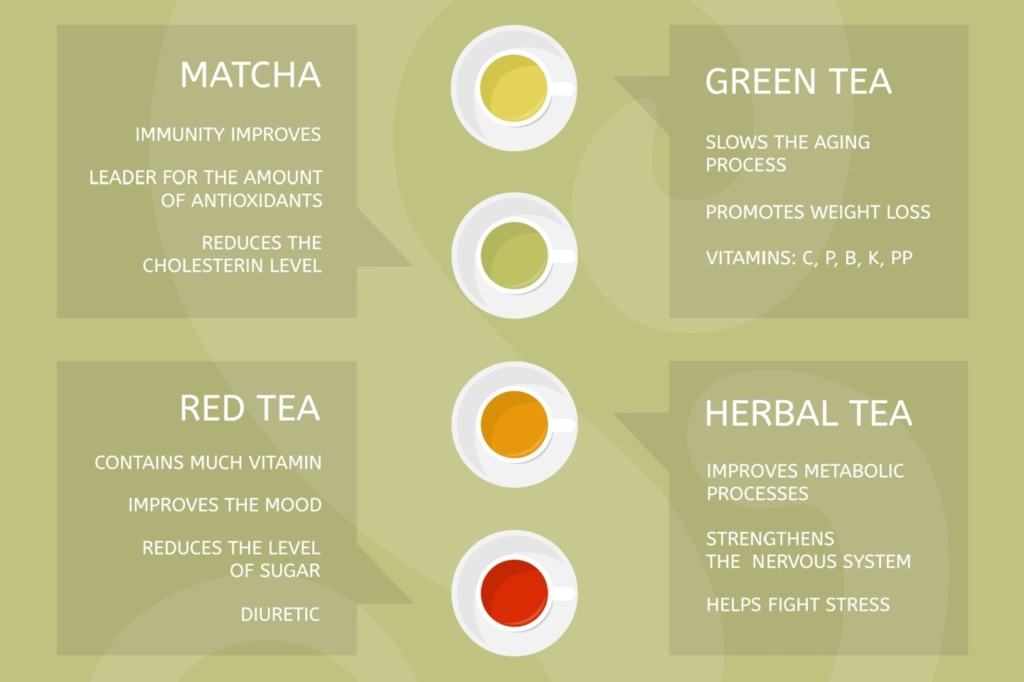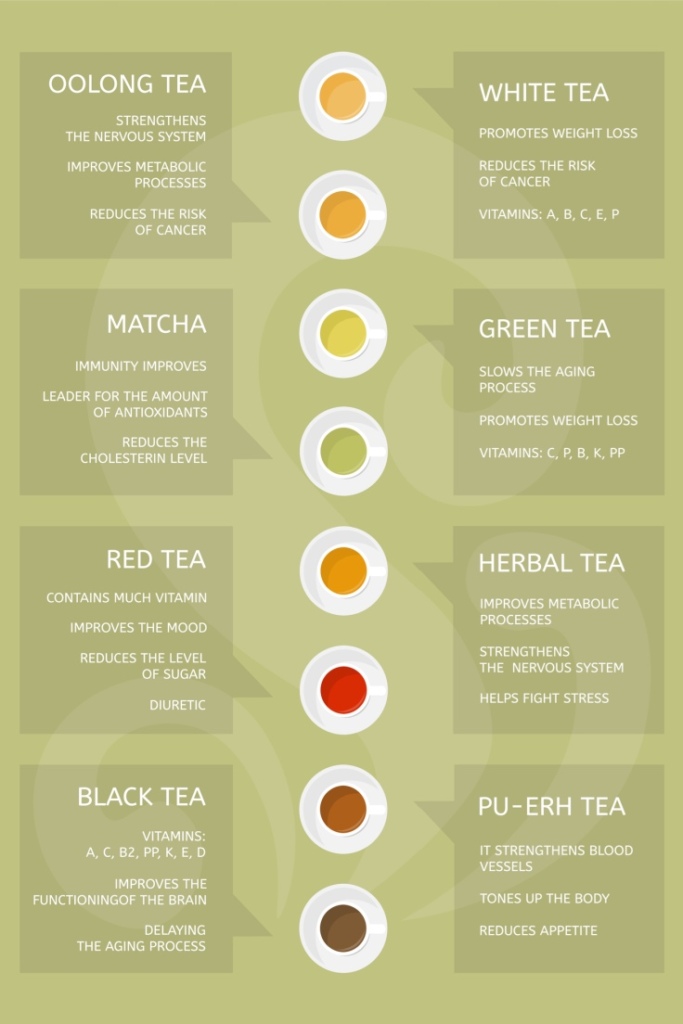
Tea, a beloved worldwide beverage, offers more than comforting warmth. With its diverse range of flavors and types, tea also provides a wealth of potential health benefits. Let’s explore the world of tea and discover each variety’s unique advantages.
The Science Behind Teas

Tea is packed with powerful antioxidants called polyphenols, which may help protect cells from damage and even contribute to cancer prevention (Mayo Clinic).
Studies have linked regular tea consumption to improved brain function, especially in older adults, with better-organized brain regions associated with healthier cognition.
Enjoying two or more cups of tea daily has been linked to a reduced risk of death from various causes, including heart disease and stroke (2022 study).
While some studies use tea extracts, the benefits of drinking plain tea are undeniable, offering heart health and weight loss advantages due to its zero-calorie, sodium-free profile (Harvard T.H. Chan School of Public Health).
8 Types of Teas and Their Health Benefits

White Tea: Nature’s Delicate Elixir
Often hailed as the purest form of tea, white tea boasts a gentle, subtle flavor profile. It’s also packed with antioxidants, which help combat free radicals and promote overall well-being. White tea has been linked to potential weight loss, improved metabolism, and reduced cancer risk.
Green Tea: The Antioxidant Powerhouse
Green tea, renowned for its vibrant green color, is a true superstar in the tea world. It’s loaded with antioxidants called catechins, which have been associated with numerous health benefits. From boosting metabolism and promoting weight loss to enhancing brain function and reducing the risk of chronic diseases, green tea offers a wide range of advantages.
Oolong Tea: A Balanced Brew
Oolong tea occupies a unique position between green and black tea in terms of processing. This balance results in a tea with a complex flavor profile and a range of health benefits. Oolong tea is believed to strengthen the nervous system, improve metabolic processes, and reduce the risk of cancer.
Matcha: The Concentrated Powerhouse
Matcha, a finely ground powder made from green tea leaves, offers a concentrated dose of antioxidants and other beneficial compounds. It’s known for its ability to boost immunity, improve metabolism, and promote weight loss. Matcha is also a great source of vitamins, including A, B, C, E, and P.
Red Tea (Rooibos): The South African Gem
Hailing from South Africa, red tea, or rooibos, is caffeine-free and naturally sweet. It’s rich in antioxidants and has been linked to improved mood, reduced sugar levels, and diuretic properties.
Herbal Tea: Nature’s Soothing Remedy
Herbal teas, made from a variety of plants, flowers, and fruits, offer a diverse range of flavors and potential health benefits. From calming chamomile to digestive-soothing peppermint, herbal teas can be enjoyed for their relaxing properties and targeted effects on specific health concerns.
Black Tea: Bold and Robust
Black tea, the most oxidized form of tea, is known for its strong flavor and caffeine content. It contains vitamins A, C, B2, PP, K, E, and D, and has been linked to improved brain function, delayed aging, and strengthened blood vessels.
Pu-erh Tea: The Unique Fermented Tea
Pu-erh tea undergoes a unique fermentation process, resulting in a distinctive earthy flavor. It’s believed to strengthen blood vessels, tone the body, and reduce appetite.
Remember: While tea offers numerous potential health benefits, it’s important to consult with a healthcare professional for personalized advice. Enjoy your cup of tea as part of a balanced diet and lifestyle.
Would you like to know more about a specific type of tea or its potential health benefits?


